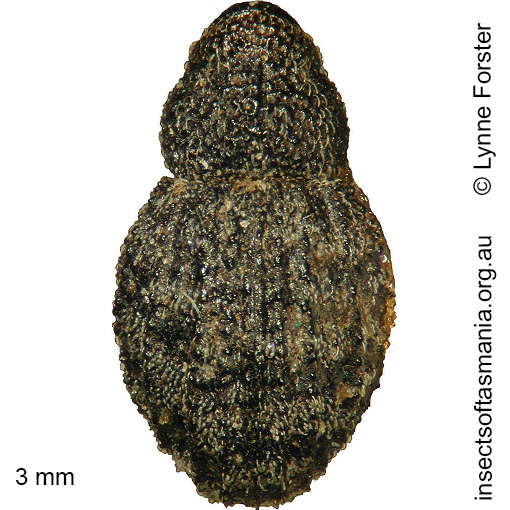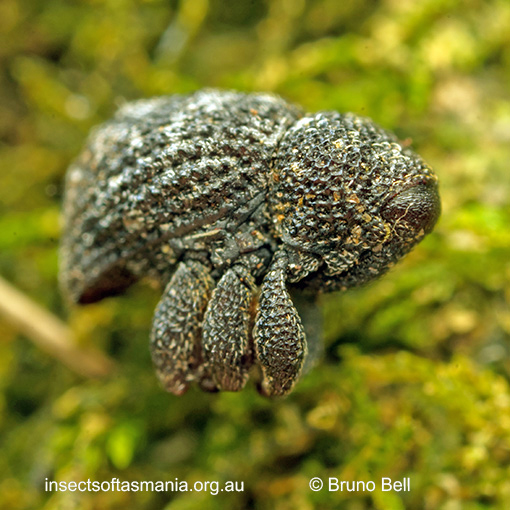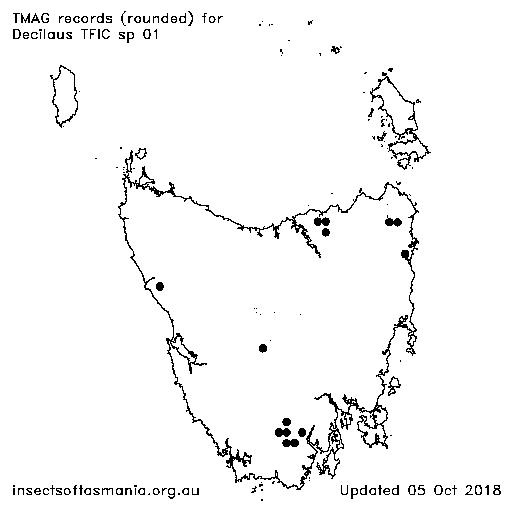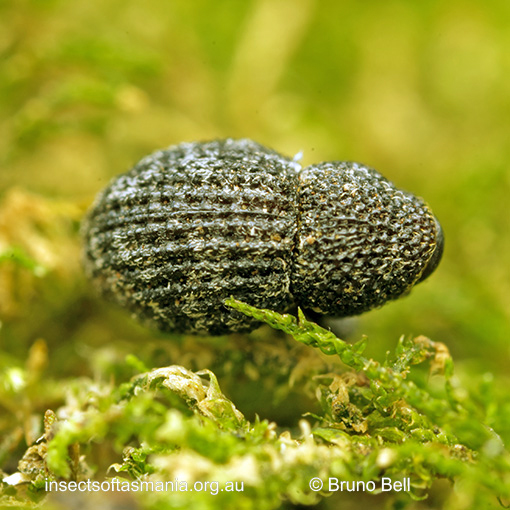
Decilaus TFIC sp 01 (a species of weevil)
Basis for Tasmanian occurrence
TMAG collections
Classification
Order: Coleoptera
Suborder: Polyphaga
Superfamily: Curculionoidea
Family: Curculionidae
Subfamily: Molytinae
Tribe: Cryptorhynchini
Morphology
Typical length (mm): 3
Flightedness: (not yet documented)
Ecology
Assumed larval feeding: wood-feeder
Association with dead wood or old trees: obligately saproxylic
Ecological attributes: — Affliliated with mature (unlogged) forest (Baker et al., 2009c) — May occupy logs or trunks of Eucalyptus obliqua, at least temporarily, since found having emerged within six years of felling (Grove et al., 2009).
Collection method(s) for TFIC material: — Emergence trapping from log of Eucalyptus obliqua — Pitfall trapping.
Source ecological literature:
Baker, S.C. (2000). Forest litter beetles and their habitat: a comparison of forest regenerated by wildfire and logging practices. Hons. thesis, Univ. of Tasmania, Hobart.
Baker, S.C. (2006b). Ecology and conservation of ground-dwelling beetles in managed wet eucalypt forest: edge and riparian effects. PhD thesis, Univ. of Tasmania, Hobart.
Grove, S. et al. (2009). A long-term experimental study of saproxylic beetle … succession in Tasmanian Eucalyptus … logs… In: Fattorini, S. (Ed.), Insect Ecology and Conservation. Research Signpost, pp. 71-114.
Grove, S.J. & Yaxley, B. (2005). Wildlife habitat strips and native forest ground-active beetle assemblages in plantation nodes in northeast Tasmania. Aust. J. Entom. 44 (4): 331-343.
Yee, M. (2005). The ecology and habitat requirements of saproxylic beetles native to Tasmanian wet eucalypt forests: potential impacts of commercial forestry practices. PhD thesis, Univ. of Tasmania, Hobart.




